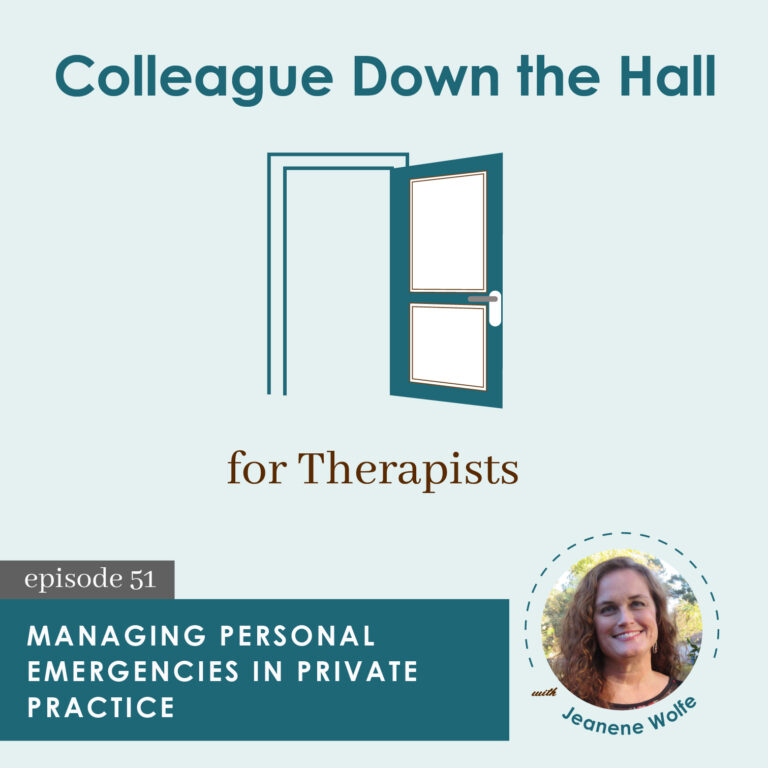CollabOasis Clinical Consultation Groups
New Groups Forming Now!
51. Managing Personal Emergencies in Private Practice
51. Managing Personal Emergencies in Private Practice

In this episode of the Colleague Down the Hall podcast, I talk about the challenges that private practice therapists face when personal emergencies or unexpected life events intersect with their professional duties. I share insights from my personal experiences of managing work-life balance while dealing with personal hardships. I discuss some criteria for making these difficult decisions and recognize the human aspect of therapists and the inevitability of facing personal emergencies that might seem to conflict with professional responsibilities. Despite our commitment to our clients, we must sometimes prioritize our own well-being or family emergencies over client sessions. My goal is to help therapists maintain professional integrity, ensure their own well-being, and ultimately continue to support their clients effectively.
“We are humans who happen to also be therapists. And there are going to be times that we have to make the decision that’s best for us, that may not be ideal for our clients. But we still need to do that in the case of an unexpected death or an unexpected need to be with a family member, needing to go out of town at the last minute to help care for somebody, those things are going to arise. And I would encourage you to create your own list of criteria. Think about the things that have come up in the past, the times that you’ve been faced with these types of decisions. What were the factors? What did you decide? And what did you learn from that experience? Because for myself, if I can feel like I have a good procedure in place for managing these decisions, then I’m also going to be more confident in that decision.”
What you’ll learn:
- Acknowledgment of Personal Hardships: While therapists often encounter individuals with significant struggles, they themselves are not immune to personal hardships and the shared human experience of dealing with difficult situations.
- Financial Considerations in Private Practice: A significant challenge for those in private practice is the financial impact of canceling sessions. It is important to have a financial safety net or fund to mitigate income loss during times when work must be unexpectedly missed, whether due to personal emergencies, illness, or other factors.
- Decision-Making Process for Canceling Sessions: It is helpful to have a process for deciding whether to cancel or reschedule client sessions. This involves assessing one’s capacity to work, considering the needs and circumstances of scheduled clients, and evaluating the potential financial impact. The decision-making process also includes self-awareness regarding the therapist’s ability to maintain professional boundaries and effectiveness, especially when dealing with personal issues similar to those of their clients.
- Flexibility and Self-Compassion: The discussion emphasizes the importance of flexibility and self-compassion in decision-making. Recognizing that situations can change and allowing oneself to adjust decisions accordingly is crucial for maintaining both personal well-being and professional integrity.
- Empathy and Humanization of Therapists: This episode humanizes therapists by acknowledging that they, too, face personal challenges and must make difficult decisions at times. It highlights the importance of setting realistic expectations for oneself and recognizing that being a therapist does not exempt one from the complexities of life.
